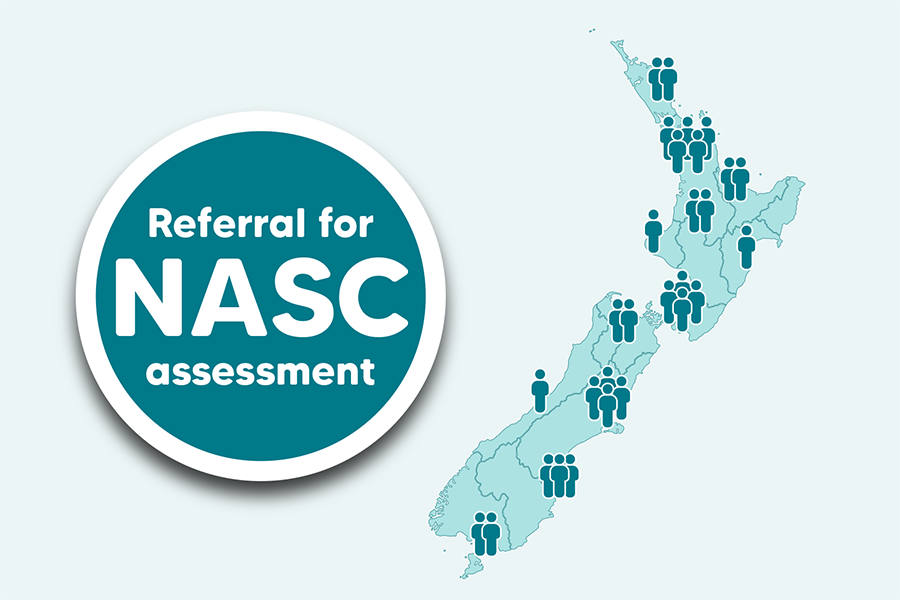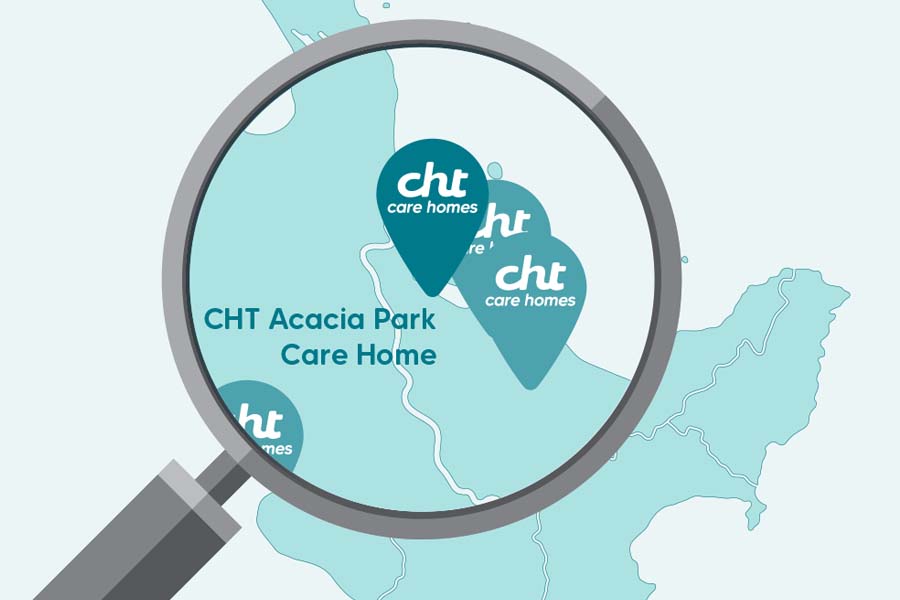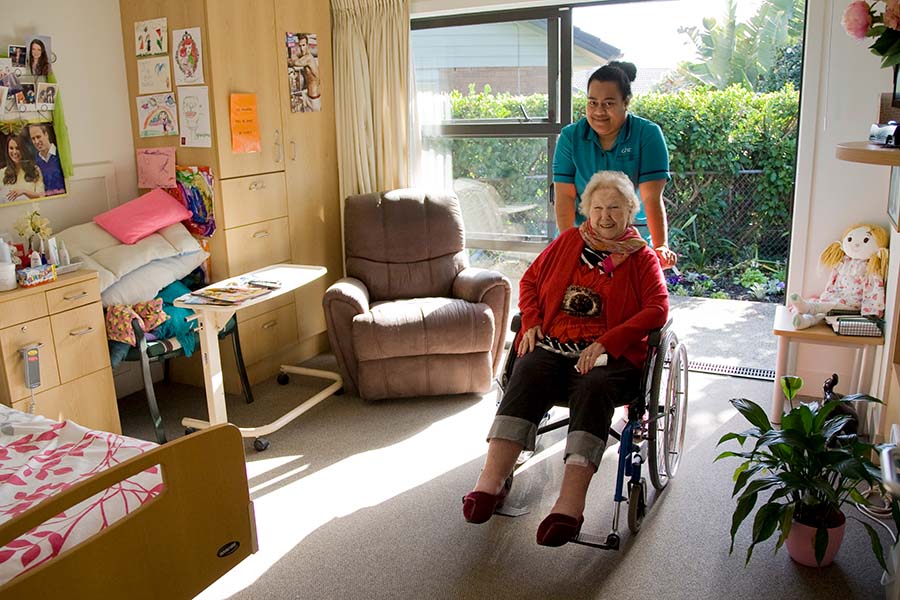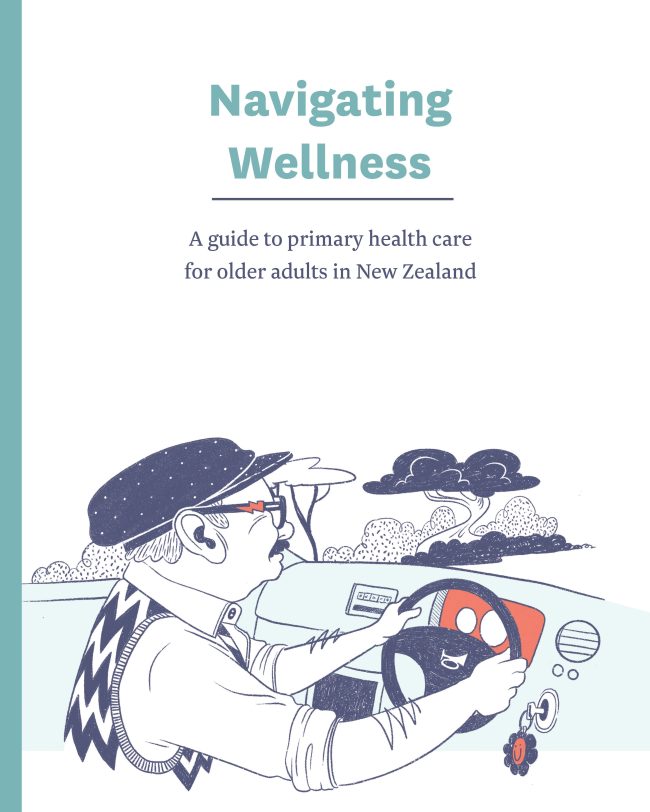Considering aged care for a loved one can feel overwhelming with many options to choose from and important factors to consider. Ensuring you choose the rest home, hospital or dementia care location where residents feel safe, happy and cared for will create a positive and reassuring experience for your loved one and your family.
Understanding Care levels
CHT Care Homes provides a full range of care options, from rest home and hospital level care right through to dementia and specialised dementia care. Most of our care homes offer seamless transition through care levels as the individual needs of our residents change over time.
An important starting point for any journey into aged care, is to understand the different levels of care available.
Rest Home
Ideal for those who still have a degree of independence, while needing assistance with personal care and activities.
Hospital Care
Perfect for someone needing full assistance throughout their day.
Dementia Care
Secure, thoughtful care, complete with specially designed areas.
Specialised Dementia Care
The highest level of care for those living with unique challenges stemming from dementia.
The journey into aged care
When the time has come to begin exploring aged care options for a loved one, there are a few simple steps to help guide you through the experience. Take a closer look at the journey and follow the helpful links to access extra information.
Step 1Arranging a Needs Assessment

Needs Assessment Services Co-ordinators (NASC) are located throughout the country as part of Te Whatu Ora Health New Zealand, and will determine whether a person is ready for aged care. NASC assessments are required should a person wish to receive disability support funding.
Your family member is eligible for long-term care, if:
- They have high or very high needs;
- Their condition is irreversible;
- and they cannot be safely supported within the community.
A referral from your GP or hospital is the easiest way to arrange for a NASC assessment, or by going directly to NASC.
Step 2Needs Assessment Takes Place

A NASC assessor will arrange a time to visit the home of your loved one, to discuss with your family the personal health requirements needed. This is a necessary step to completing the assessment and a specialist geriatric assessment may also be required. Should your loved one be in hospital, the hospital can arrange a needs assessment in the ward.
A range of options may be discussed including rest home, hospital, dementia, or specialised dementia care, based on the determination of the NASC assessor.
Once the appropriate level of care has been decided, you will be given a financial means application to apply for public funding. You can find out about the Aged Care fund here.
Step 3Creating a personalised plan

NASC will work together with your family to create a plan for what support services are needed and authorise entry into a care home with the right level of care.
Your family can choose any residential care provider in New Zealand that has a Te Whatu Ora Health New Zealand contract to provide the assessed level of care needed. Search directories such as Eldernet and Aged Advisor are a great place to start researching options in your area – you can also filter options by care level.
Step 4Choosing a care home

With a multitude of options to choose from, how do you know what to look for when choosing a care home?
The Ministry of Health conducts regular audits to ensure all rest homes meet the standards of the Health and Disability Services (Safety) Act 2001. You can review these audits here.
After shortlisting care home options in your selected area, we recommend personally visiting to see for yourself what life looks like there, to meet the Care Home Manager in person, and to ask any questions you may have.
It can be challenging to know what to look for or ask about, so this checklist will be a helpful guide to assist you in making the right decision for your loved one.
Step 5Agreeing to admission

An admission agreement is a legal document that protects the interests of both the resident and the care home, and is required to be signed prior to admission. The agreement spans a range of topics such as extra services, resident safety, special procedures, and issue resolution.
It’s recommended that you read the agreement carefully and have another family member or lawyer take a look too, so that you are thoroughly aware of the expectations and responsibilities held within the document.
Once the admission agreement has been signed, your loved one can move into their care home. Our Care Home Managers and their team will be with you every step of the way to ensure that any questions or concerns you have are handled, and to create a welcoming transition into aged care.
Residential Care Funding
Following the NASC assessment, an application for a financial means assessment can be lodged with Work and Income New Zealand, to determine whether public funding through a Residential Care Subsidy or a Residential Care Loan is an option.
More information on Residential Care Subsidy and Residential Care Loan can be found here.
CHT Care Homes offers a standard room option at all locations at no extra cost. Some rooms have an additional accommodation fee based on the size and amenities available in the room, which is paid privately and is not funded as part of the loan scheme.





